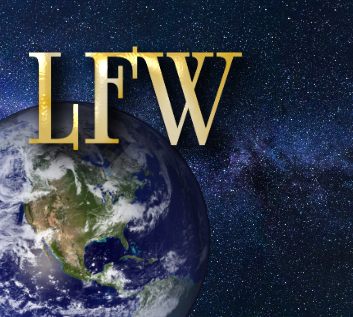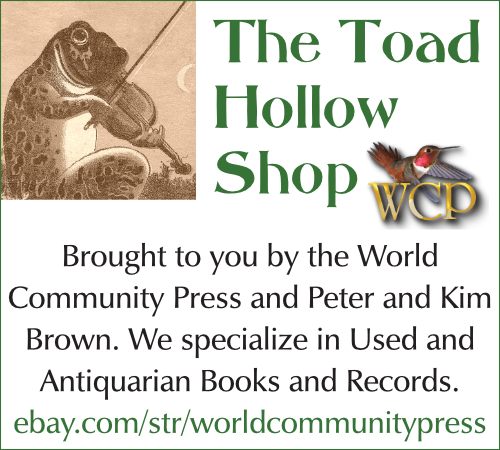The Value of One: Religious Freedom and the Growth of a Mystical World Nov 9, 2009  In any discussion of values, ethics and public policies, I like to make things very personal, for when an issue becomes personal, rationalizations tend to fall away. The same approach can be used to discuss why every country, religion and individual in the world should support religious freedom. I believe that it would be very difficult to find a single individual in the world today who would genuinely proclaim, “Take away my freedoms! Take away my freedom to think; my freedom to love; my freedom to dream; and my freedom to follow my desires and destiny.” If we were to find persons who said all these things, is it not true that they would rather quickly change their minds if their freedoms were removed? Therein lies an interesting twist; one cannot dominate the mind of another; one cannot prevent a person trapped in a physical or mental cell from yearning for freedom. Thus, let us make the question of religious freedom personal to every human being – both to the oppressed and the oppressors. The oppressors of religious freedom also have minds longing to be free, and would not brook the captivity in which they place their victims. How sad it is that they forget, or cannot resonate with, the pain of oppression. The Puritans who escaped religious persecution in England failed to understand how vital it was that all religious beliefs be respected, and proceeded to persecute and banish those who disagreed with them, including Roger Williams, the founder of Rhode Island. The attack on religious freedom comes from atheists as well as those who believe in religion. Perhaps one common denominator that frequently motivates both types of attackers is that religious freedom weakens the power base of the attackers. Finances, status and position are all affected when one’s constituents begin to think for themselves. Sometimes, attacking religious freedom is personal, as it is with those individuals who seek to “rescue” their family members from unpopular religions. Yet, is it not true that the persecutors of religion have forgotten how precious religious freedom is to their own souls? Whether they are oppressing individuals or groups, they are shoving their victims into cages that they would shudder to inhabit. Sometimes the cages are very real, as was the case for Pastor Richard Wurmbrand, who endured fourteen years of confinement and brutal torture under the Romanian Communists. Sometimes the cages are both mental and “virtual”, as is the case with millions of women suffering under the tyranny of radical Islam. One must wonder how long it would take for Islamic women to change their burkhas for normal clothing, and then seek basic freedoms, such as alternative religious worship, voting and driving, if all of the men in their societies strongly encouraged them to pray as they wish, dress as they like, and live lives of complete freedom. Why is it that Islamic men do not grant women in their countries religious and social freedom? They would lose their power over women, but their own lives would be the freer for it. The motivation to oppress religion, or oppress others through religion, is often obvious and crass. When religious freedom is oppressed by force, it is easier to condemn than religious oppression based on tradition, social mores and peer pressure. It is truly unfortunate that religious individuals and institutions have too often ostracized those who searched for meaning in their own unique fashion. Religious freedom within one’s religion is just as important as freedom for the religion itself. The religious freedom of a group or individual should never impinge upon the freedom of others, and should never be allowed to harm others. The search for individual meaning has given birth to the religions of history. Despite the conflict between religions, each religion still clings to the belief that God was the inspiration for their faith. Many religious individuals might agree with the words of the eighteenth century mystic, Emanuel Swedenborg, when he wrote in Divine Love and Wisdom, “We have mentioned these matters so that people would not believe that they climb up to God on their own – it is the Lord’s doing.” If it is the Lord’s doing that people have sought an inner world of peace, then how can anyone object to another person’s religious path without jeopardizing their own right to seek a way that is best for them? The most violent persecutor of religion must still sleep each night and enter an invisible world of dreams and thought that transcends the daily business of persecution. That inner world is the world of the mystic, where each individual has the opportunity to be still and meet the God who lives within. David N. Elkins, in his book, Beyond Religion, wrote, “I believe we become mystics by following that deep, nostalgic longing that stirs at the core of our souls. Tillich called it the Reunion with the Ground of our Being.” If an atheistic or religious persecutor of religion finds a moment to sit quietly and gaze upon a beautiful scene in nature, will something of God stir in his heart? I believe that it will, even though it might go unrecognized for a time. The Swedenborgian scholar, Wilson Van Dusen, wrote that God is like a “shy lady”, hiding behind the latticed screen of our ego. We have to make effort to even notice that God is there. Thus, Meister Eckhart said that, “The very best and utmost of attainment in this life is to remain still and let God act and speak in thee.” Recognizing that every person in the world has God dwelling in them lifts each person to a station in life that mandates that they be given complete religious freedom to allow God to flower in them. Regarding each person as his or her own Lord throughout heaven and earth eliminates the evil of the caste system and allows all of us to look at each of us with humility. Religious freedom allows mysticism to bloom. When a person is granted complete religious freedom, he or she can explore the inner world of love and faith with impunity. That exploration might lead them to practice Buddhism even though they were raised Christian. It might lead them down many paths, some of them unexpected and different. Yet, each person must go their own way, for mysticism recognizes that each person is following the blueprint that God has expressed in them, and has expressed as them. The Irish poet and philosopher, John O’Donohue, wrote, “Your soul knows the geography of your destiny. Your soul alone has the map of your future, therefore you can trust this indirect, oblique side of yourself. If you do, it will take you where you need to go, but more important it will teach you a kindness of rhythm in your journey.” As each person follows their own map toward the mystical world where God resides, they change and grow, and become more and more resonant with the core of love and kindness that defines God. I believe that the path of mysticism starts with the desire to tread upon it. As a neophyte, I can attest that tremendous power to endure life’s trials comes from the simple commitment to walk “the path of love”. It is like picking up a compass and a map in the forest and saying, “Aha! I have to go that way!” It feels very joyful to place one’s feet upon the path, even though the journey may be very long. The most wonderful phenomenon that I have encountered is that the Spirit of Love is powerfully present the instant one even thinks about loving others. What could be more mystical than that? The value of one person walking a mystical path in religious freedom is that the internal world that each person lives in is an infinitely expanding world – a sphere of heart that is generated by the love of God flowing through each of them, and expressed as them. Each person is a power station of thought and feeling, casting ripples of energy far beyond their line of sight. Granting one person the religious and social freedom to follow his or her heart is a blessing upon the world. As the sum of individuals who are walking the path of love and mysticism multiplies across the world, the atmosphere of the world will change. Barriers between religions will crumble, for the heart contained in mysticism transcends culture and religion. Wilson Van Dusen wrote in his book, Returning to the Source; The Way to the Experience of God:
The Plain of the Universal is the mystical world on earth and in the spirit world where all humankind will one day meet. That world is brought closer each time one person is granted the religious freedom to find God in their own way. I believe that it is inevitable that the journey to that world will succeed, for as Swedenborg said, “It is the Lord’s doing.” Peter Falkenberg Brown is passionate about writing, publishing, public speaking and film. He hopes that someday he can live up to one of his favorite mottos: “Expressing God’s kind and compassionate love in all directions, every second of every day, creates an infinitely expanding sphere of heart.”
(Comments are moderated and must be approved.) “The Epiphany of Zebediah Clump”
Watch our first film right here. |









